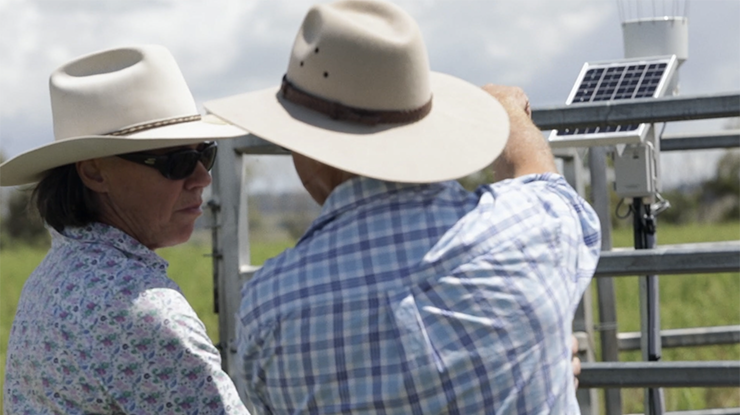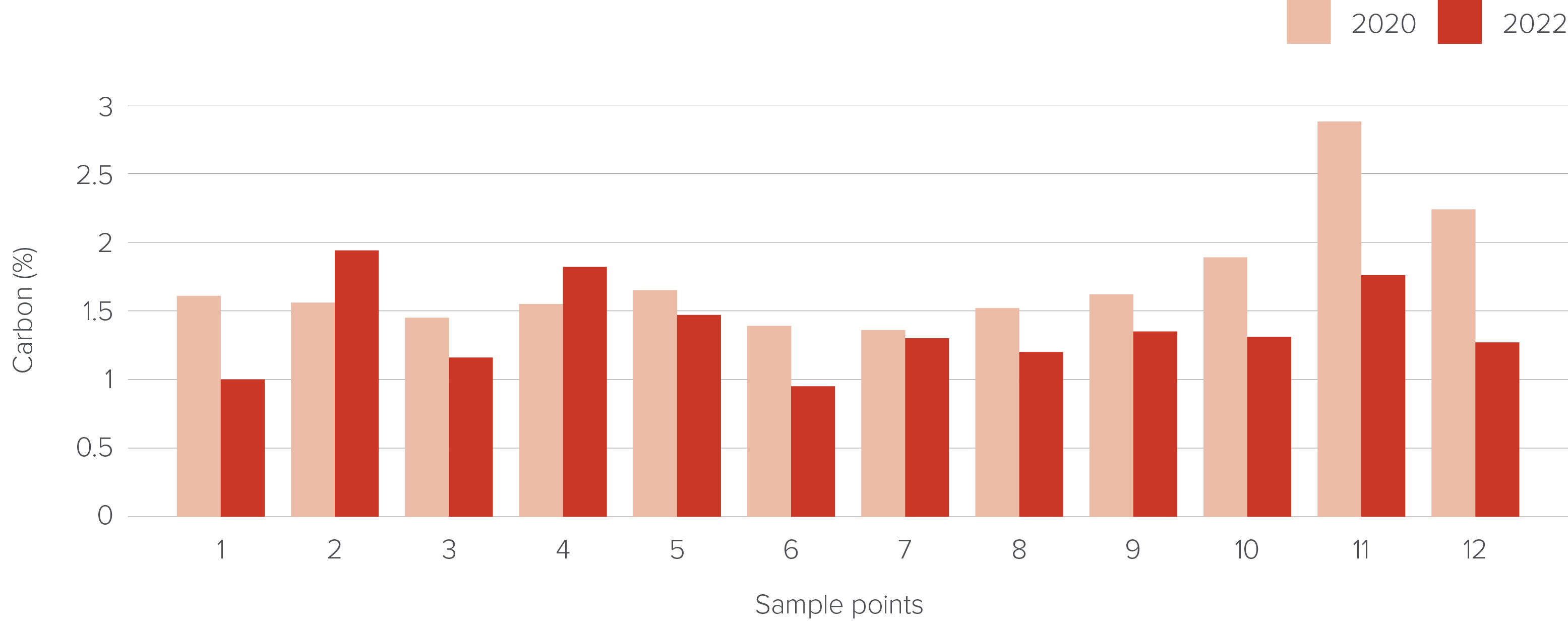 Gary and Rhonda Olrich have 'brought carbon along for the ride' as part of their improved grazing management to support their mixed enterprise. Photo: Gary Olrich.
Gary and Rhonda Olrich have 'brought carbon along for the ride' as part of their improved grazing management to support their mixed enterprise. Photo: Gary Olrich.
Gary and Rhonda Olrich's holistic approach in their New England beef business made them the perfect fit to participate in a project which dug deeper into how grazing practices impact livestock health and productivity, and how soil moisture and carbon can come along for the ride.
The MLA Donor Company project, in partnership with Precision Pastures (see story here), has fuelled the couple's drive to find solutions to their production challenges.
"You've got to improve your knowledge – grazing practices, sustainability, holistic management, everything," Gary said.
"Getting that education from professionals and like-minded people and then implementing it is the most important part of the job."
Improved pasture management
For Gary and Rhonda, the change to grazing practices on their Woolbrook property, 'Glenview', was driven by their goal to improve animal health, as well as a desire to maintain productivity and carbon levels.
Their shift to rotational grazing, hand-in-hand with more effective drenching, combatted the property's barber's pole worm burden, and provided better nutrition for sheep and cattle.
It also underpinned the Olrichs' realisation of the foundational impact these changes have on soil health, pasture productivity and carbon sequestering, alongside their focus on animal health.
Gary and Rhonda primarily target the feedlot market with steers, which are bred at Glenview and backgrounded on their other properties. They target an average turn-off weight of around 400kg, with a focus on feedlots that promote and support sustainable products.
"We've made a strategic shift with moving from set stocking to rotational grazing, so now we're subdividing and monitoring our paddocks before and after grazing.
"We could benefit from more stock in our rotation to get right down to the soil, but our rotations aren't regular – they're done every few days with respect to the impact on our soils," Gary said.
"We want to monitor our stock and make sure we aren't sacrificing production value, while still maintaining soil health and sequestering carbon."
Variables affecting carbon
Although Gary and Rhonda's improved livestock management has helped in their carbon sequestering, they've experienced an overall drop in carbon since 2020 (see graph below).
The graph shows the variability of carbon levels across Glenview – ranging from 0.95% to 1.94% – as well as a 0.3% drop of overall carbon levels from 2020 to 2022.
However, the project revealed this decrease was due to high rainfall and oversaturation of soil, and Gary and Rhonda's effective grazing practices have, overall, produced a relatively consistent maintenance of carbon levels.

The variability of carbon levels across 'Glenview' between 2020 and 2022.
On-farm values for sustainability and enterprise
Gary and Rhonda's balanced approach to their carbon and grazing project has seen their focus on livestock production hold steady while maintaining their carbon and sustainability goals.
For example, they align with quality assurance programs which specifically help promote and produce sustainable products.
Looking ahead, their plans to increase cattle production, use artificial insemination to access genetic gain, and improve fencing and infrastructure, are underpinned by their focus on productivity in tandem with sustainability.
Despite the initial outlay to set up soil monitoring and baseline assessments, Gary said their focus on sustainability will add up for their business.
"We believe consumers will be prepared to pay more for products that help the planet, and that's the path we should be promoting.
"People have more knowledge about how our work affects the world and how their purchases go into that, so if we are working towards that, in the future, we see it as a really profitable venture," Gary said.
Related content
- Soil, stock and carbon trifecta
Resources
MLA has a range of resources for soil, carbon and grazing management, including:
- Feedbase hub
- Carbon calculators
- Pasture improvement calculator
- Sustainable grazing – a producer resource
- Carbon accounting technical manual
- Precision Pastures offers a tailor-made Carbon Starter Report for producers interested in estimating their soil carbon.






